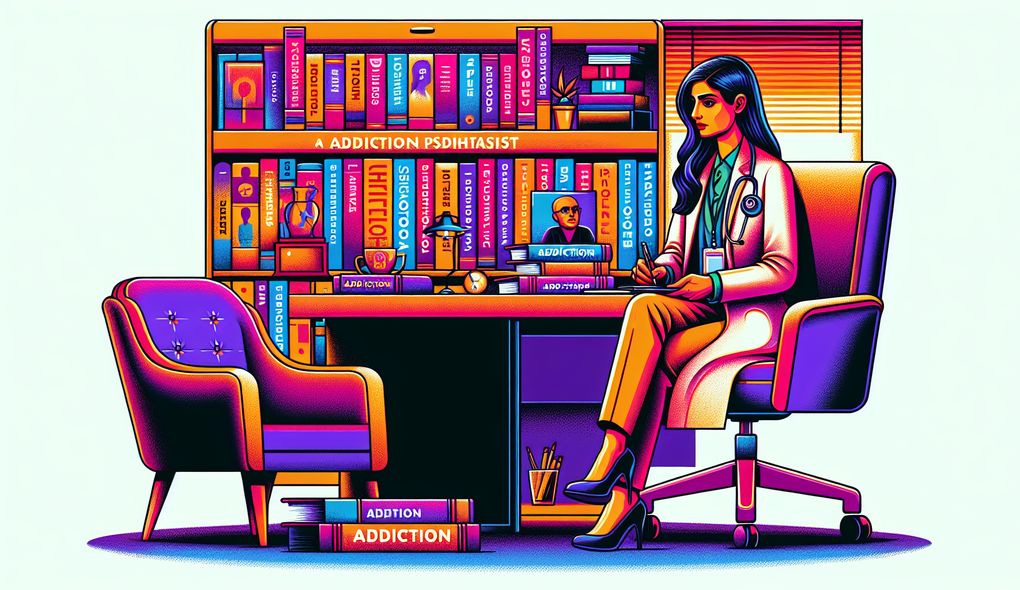How do you approach critical thinking and problem-solving in your work?
INTERMEDIATE LEVEL

Sample answer to the question:
In my work, I approach critical thinking and problem-solving by first thoroughly assessing the situation or problem at hand. I gather all relevant information and analyze it to identify the root causes and potential solutions. I then brainstorm different ideas and evaluate their effectiveness and feasibility. Once I have a plan in place, I take action to implement the solution and monitor its progress. Throughout this process, I remain open to feedback and adapt my approach as needed. This approach has helped me to effectively address complex issues and find innovative solutions in my previous roles.
Here is a more solid answer:
In my work as an Addiction Psychiatrist, critical thinking and problem-solving skills are essential. When faced with a complex issue, I start by gathering all the available information, including the patient's medical history, symptoms, and any relevant test results. I then analyze this information to identify the underlying causes of their addiction and related mental health conditions. This analysis allows me to develop an individualized treatment plan that can address their unique needs. Throughout the treatment process, I continuously assess the patient's progress and make adjustments to the plan as necessary. For example, if a prescribed medication is not effectively managing the patient's symptoms, I reconsider the diagnosis and explore alternative treatment options. This approach to critical thinking and problem-solving has allowed me to provide effective care to my patients and achieve positive outcomes.
Why is this a more solid answer?
The solid answer provides specific examples of how the candidate applies critical thinking and problem-solving skills in their work as an Addiction Psychiatrist. It demonstrates how they gather and analyze information to develop individualized treatment plans and adapt their approach as needed. However, it could be improved by including more details about their previous experiences and outcomes.
An example of a exceptional answer:
In my role as an Addiction Psychiatrist, critical thinking and problem-solving skills are at the core of my practice. When faced with a patient struggling with addiction, I approach the situation by conducting a thorough assessment, considering not only their substance use disorder but also any co-occurring mental health conditions. This comprehensive evaluation allows me to identify the underlying factors contributing to their addiction and tailor a treatment plan that addresses both their physical and psychological needs. For example, I recently had a patient who had relapsed multiple times despite receiving standard addiction treatment. I engaged in critical thinking to explore potential underlying factors that may have been overlooked. Through careful examination of their social environment, I discovered that their living situation was triggering a sense of isolation, leading to increased substance use. I collaborated with the patient to develop a plan to address this issue, including connecting them with a supportive sober living community. As a result, the patient's relapse rate significantly decreased, and they started showing progress in their recovery. This experience highlighted the importance of critical thinking and problem-solving skills in addiction psychiatry, as it allowed me to identify and address the root cause of the patient's ongoing struggles.
Why is this an exceptional answer?
The exceptional answer goes above and beyond by providing a specific and detailed example of how the candidate's critical thinking and problem-solving skills directly impacted a patient's treatment outcomes. It showcases the candidate's ability to think critically and apply their knowledge and experience to find innovative solutions. The answer also highlights the candidate's commitment to addressing the underlying causes of addiction and their emphasis on holistic care. The example demonstrates their ability to adapt their approach and collaborate with the patient to achieve positive results.
How to prepare for this question:
- Review case studies or scenarios related to addiction psychiatry and practice applying critical thinking and problem-solving skills to develop treatment plans.
- Familiarize yourself with current research and advancements in addiction psychiatry to stay informed and enhance your critical thinking abilities.
- Seek opportunities to collaborate with multidisciplinary teams, as this will help develop your problem-solving skills in a collaborative setting.
- Reflect on past experiences where critical thinking and problem-solving were crucial in achieving positive outcomes for patients, and be prepared to discuss these examples during the interview.
- Consider seeking additional training or courses in critical thinking and problem-solving to further develop these skills.
What are interviewers evaluating with this question?
- Strong critical thinking and problem-solving skills

